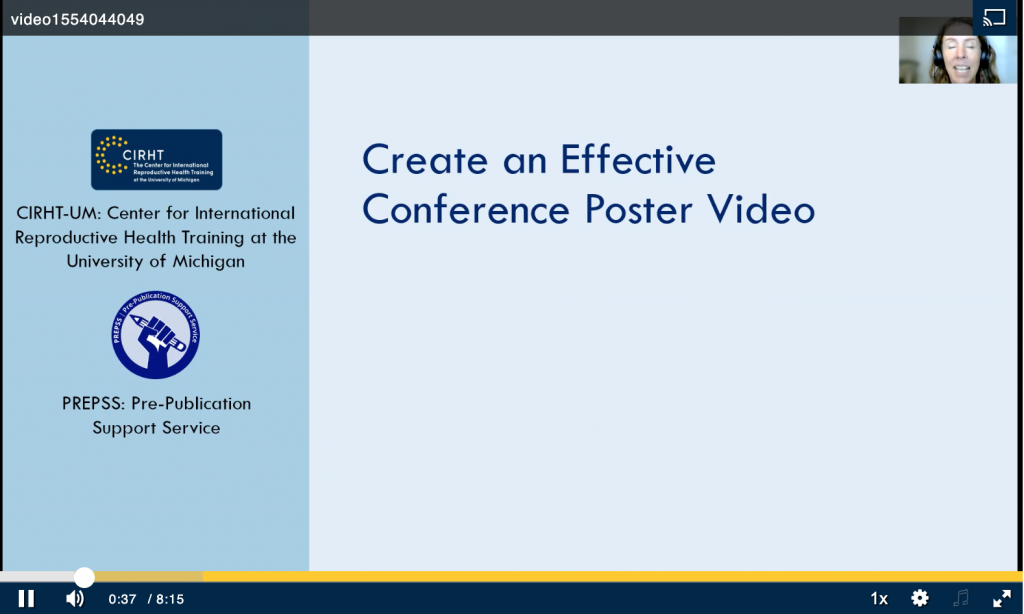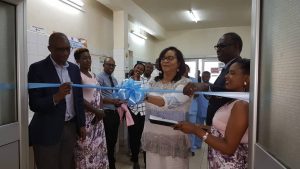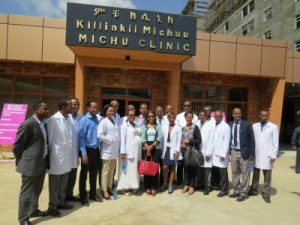News Review – 11 August 2017
Context in foreign assistance
Access and delivery of family planning services depend on many factors. This week saw a number of discussions and research reports about the effects of cultural sensitivity and technology appropriateness on that access and delivery.
The international discussion continues to start with the “foreseeable harm of Trump’s Global Gag Rule”, which an analysis in Studies in Family Planning concludes fails to accomplish its primary aim, harms the health and well-being of individuals and populations (including an increase in maternal mortality), and slows governments’ towards meeting international obligations across the board, including the SDG’s.
The effects can be felt across Africa. The founder of Everywoman Everywhere noted that on a recent trip to Kenya, DRC and Somalia, “Despite widely varied contexts, two refrains were consistent: an acute awareness that their survival depends on choosing to have smaller families, and an utter lack of agency in making that a reality.” A VICE news report from Malawi shows the negative consequences for contraception and STI and HIV treatment.
The Sustainable Development Goals (SDGs) on maternal health call for reducing the global maternal mortality ratio (MMR) to below 70 per 100,000 live births by 2030, with no single country having an MMR of more than 140. At a Wilson Center event, UNFPA’s Rachel Snow noted, “’One of the ways to achieve these goals is by collecting comprehensive and disaggregated data on maternal health in every country that has committed itself to the SDGs.’ But how can countries collect the most reliable and indicative data, and what are the gaps that need to be filled? Doris Chou of the World Health Organization explained that countries are not all on the same page when it comes to maternal health measurement; some country databases have not been updated since the Millennium Development Goals (MDGs) ended in 2015.” Another SDG focus is births attended by a skilled birth attendant. Yet an analysis in Devex notes “the focus on SBAs could be distracting from even more fundame ntal health system reforms,” with a UK NGO adviser suggesting “a more holistic means of measurement.”
“Achieving the targets of FP2020 is essentially a challenge of the Global South,” according to an essay from Partners in Population and Development, yet “most of the Family Planning policy research is led by the institutions of the Global North… South-South Collaboration has great potential to lessen inequity in access to family planning commodities and make progress toward universal access to family planning.”
Studies promoting smaller families as “the most effective way to mitigate climate change”, as an economic development tool, or finding “linkages between family planning, inclusive economic growth, and resilience” can sometimes be seen out of context as well.
Context in local solutions
Across Africa, addressing healthcare access is particularly urgent. “Africa currently has 24% of the world’s burden of diseases yet has only 3% of the global health workforce. Added to this challenge, was the “brain drain” of health professionals, including nurses, which continued to plague countries across Africa.” Some local responses: Ethiopia “is part of an emerging global movement to provide quality basic surgical care to families so women in need of caesarean sections don’t die” by training “health care workers like nurses, clinical officers, general practitioners, and midwives who are already on the job.” Local health workers in Angola are receiving specific sexual health train or their communities. In Sierra Leone and Somaliland, a study from BMC Health Services Research on traditional birth attendants shows that “through further integrating them into the formal health system… their potential is arguably critically important in promoting universal health coverage in fragile and conflict affected states where… maternal and newborn health care needs particularly acute.” In Kenya, researchers used “behavioral economics to help women decide where to give birth in Nairobi.”
A number of articles and studies about Nigeria this week: MamaYe is working to make maternal health intervention sustainable. Other successes reported in Nigeria include “a 10 percentage-point increase in the use of modern contraceptive methods and a similar increase in the desire of women to have fewer children” in part attributable to a sustained, four-year communications effort led by the Johns Hopkins Center for Communication Programs (CCP). “In clinics, on television programs, in brochures, the message of the CCP program was the same: Know, Talk, Go. Know the facts. Talk to your partner. Go for services.” And in Lagos state, “in less than six months, there was uptake of family planning by 600,000 women, following improved services, enabling the state to prevent 46,000 unsafe abortions, 143,000 unintended pregnancies and 800 maternal deaths, according to its Ministry of Health.” And another recent study shows “changing attitudes towards family planning and desired family size among rural dwellers… so more women and couples will be seeking family planning services. Addressing obstacles such as access, affordability, and availability will help meet these needs and ensure that women and couples can meet their childbearing and reproductive health goals.” And Global Health Now spoke with Margaret Bolaji, a youth activist for girls’ health and rights in northern Nigeria, who noted “policy barriers that prevent young people from accessing the resources they need to plan their families. Also, the few youth-friendly services available are not evidence-based, and do not meet context-specific needs (differences in sex, age, marital status or parity) and do not include a full range of methods.”
The Universal Access Project calls for support in the ongoing famine crises in South Sudan, Nigeria, Yemen and Somalia, where “girls and women have the least power and status, and often at times of crisis, their basic needs are de-prioritized or neglected, and the fulfillment of their essential health and rights – including the ability to plan their family and futures – is left by the wayside… In many places, access to family planning services and information is limited or nonexistent for girls and women who wish to delay or prevent pregnancy. If and when a woman does become pregnant, her health and that of her future child are at risk.”
A report from Uganda says the government has spent $600,000 on female condoms, but a low uptake is leading to fears of a rise in HIV. That story is balanced by news of a local NGO, HEPS-Uganda, which has helped health centers change their procurement policies to attune to local needs.
In West Africa, as a part of the Ouagadougou Partnership, family planning youth ambassadors are being deployed. Concerts to reach young people with family planning and maternal health information are taking place in Ghana and Zimbabwe. Four Tanzanian university students were feted for creating a smartphone app to spread SRH information.
PopWorks Africa partners with leaders in the community, NGOs, and government sectors to create development programs that are innovative and sustainable in their support of healthy communities. Focusing on youth and social movements on the African continent, its mission is “to break silos…while highlighting the innovative work and activism already being done.”
An assessment of Malawi undertaken by UNFPA and UNHCR linked SRMNCH to the human rights context: “The poor SRMNCH indicators are intricately linked with violence against women, poor health seeking, marginalization, women’s minimal participation in decision making, the under-prioritisation and under-funding of services and goods only women require and lack of accountability mechanisms to respond to maternal deaths and grievous injuries. Human rights violations are therefore both a cause and consequence of poor performance in SRMNCH.”
A women’s group in Liberia is pushing for a law against FGM, though another article refers to a “shadow society that controls women’s bodies.”
In Rwanda where the maternity mortality ratio dropped from 1,071 out of 100,000 in 2000 to 210 out of 100,000 in 2015, Health Minister Dr. Diane Gashumba lists addressing “the social determinants of poor maternal health outcomes” as her top priority, because that “will help to identify major obstacles and the most effective coordination mechanisms.”
And Pathfinder International is shifting its operational focus to the field, “breaking down the headquarters/field divide, working with refugees and host-country populations, and combining family planning with conservation,” among other innovations.
Stigma, conscientious objection and bearing witness
The stigma barrier also shows itself differently in a variety of contexts.
Western Sydney University published research which shows that for refugee and migrant women, “a cycle of misinformation, shyness and fear is preventing [these] women from receiving adequate sexual and reproductive health care and support.”
A study in BMJ Global Health says that “the global taboo surrounding vaginal bleeding is putting women and girls around the world at risk.” Silence can also be harmful when it comes to fighting malaria: pregnant women across sub-Saharan Africa do not seek prevention or treatment, mostly because of lack of knowledge, but sometimes even a belief in “supernatural forces.”
“Conscientious objection” to providing family planning services is on the increase. Recently, “50 experts from 20 countries in Africa, the Americas and Europe, gathered at the first international convening on conscientious objection to abortion concluded that the refusal to provide legal abortion services is hurting women all over the world and must be tackled.”
Abortion storytelling gives women “the capacity to change their friends’ perspectives on abortion with their own stories,” according to recent research, even if they bring up painful memories. As one writer who had an abortion at 19 puts it, “If you’ve terminated a pregnancy, talk about your abortion, even if you are afraid. Talk about it because you’re afraid. If it’s too scary to tell the truth for yourself, then tell it for others and we’ll all be free.” In western Kenya, “community groups now encourage women — and men — to freely share their unsafe abortion experiences.”
The volatile US context
The Democratic Party is having an internal, though public, debate about supporting anti-abortion candidates, for which some say “women would pay an enormous price.” More action in Congress, legislatures and the courts (“Trump’s picks are “terrible”) about abortion access in Texas (“If Only Texas Regulated Gun Ownership Like it Does Reproductive Rights”), New Jersey, Illinois, and Missouri, including cuts for programs that fight teenage pregnancy.
Meanwhile, in Ontario Mifegymiso will be available for free, joining two other provinces, in a policy that attempts to “completely remove what is often a significant barrier to abortion — i.e. financial constraints — and make it accessible to women of all socioeconomic levels.”
Good reads
Development + Cooperation issue on pregnancy and childbirth; Under-served and Over-looked and DELIVER+ENABLE TOOLKIT: Scaling-up comprehensive sexuality education (CSE) from IPPF; a compendium of articles about “Conscientious objection” from the International Campaign for Women’s Right to Safe Abortion.
CIRHT!
And just for fun, have a look at the nascent CIRHT Flickr account. More to come there as well.
Complete News Review References:
General/Global
In West Africa, Family Planning Youth Ambassadors Are Helping Their Countries Plan for the Future, Huffington Post, 11 Aug 2017
Conscientious Objection, Part II, International Campaign for Women’s Right to Safe Abortion, 11 Aug 2017
We’ve Prioritized Humans Having Umpteen Kids Over the Right of Entire Species to Survive—and It’s Got to Stop, AlertNet, 11 Aug 2017
Maternal and Women’s Health, Two Years In: Measuring Progress Towards Meeting the SDGs, New Security Beat, 10 Aug 2017
What do Men have to do with Women’s Reproductive Rights?, Girls Globe, 10 Aug 2017
Programs That Fight Teenage Pregnancy Are at Risk of Being Cut, The New York Times, 10 Aug 2017
Condoms are still in the “family planning” aisle at the drugstore. Experts say that’s a problem., Mic, 10 Aug 2017
‘Rape insurance’: Texas House of Representatives passes bill to make women buy extra coverage for abortions, The Independent, 10 Aug 2017
If Democrats Compromise On Abortion, Women Will Pay An Enormous Price, Bustle, 9 Aug 2017
When the Personal Becomes Political: Exploring the Power of Abortion Storytelling, Ms. Magazine, 9 Aug 2017
Miracle mother who lost NINE LITRES of blood during labour due to a rare complication woke up 24 hours after doctors warned she’d be left in a permanent vegetative state, Daily Mail, 9 Aug 2017
Does Being Pregnant Once Make You More Likely To Get Pregnant Again? Science Explains The Theory, Romper, 8 Aug 2017
Are African governments in the driver’s seat when it comes to health financing policymaking?, BioMed Central, 8 Aug 2017
US fertility rate hits a record low, CNN, 8 Aug 2017
Trump’s Latest Judicial Picks Continue To Be Terrible for Abortion Rights, Rewire, 8 Aug 2017
Structural shake-up at Pathfinder as it grapples with ‘global gag rule’, Devex, 8 Aug 2017
A leading abortion activist looks to telemedicine to expand access, Crain’s New York Business, 8 Aug 2017
‘I Had An Abortion At Age 19 And It Changed My Entire Outlook On Life’, Women’s Health, 8 Aug 2017
“Europe’s review of abortion rights is part of a war against #women rights”, Council of Europe, 8 Aug 2017
Facing Famine, Girls And Women Bear The Heaviest Burden, Huffington Post/Universal Access Project, 7 Aug 2017
What a Ban on Insurance for Abortions Means for Women with High-Risk Pregnancies, Texas Observer, 7 Aug 2017
Maternal deaths are a national tragedy that deserve a national response, The Incidental Economist, 7 Aug 2017
Only 3% of world’s healthcare workers are in Africa, Health 24, 7 Aug 2017
When surgery isn’t a choice during childbirth, Global Health Action, 7 Aug 2017
Thousands back calls for buffer zone around abortion clinics to stop protesters harassing women, Evening Standard, 7 Aug 2017
Inside Your Health: Family Planning and Sterilization, KSTP, 6 Aug 2017
NJ Gets Federal Money For Family Planning, But There Are Concerns In New Trump Budget, CBS Philly, 5 Aug 2017
Idea of Democrats funding anti-abortion candidates draws ire, Daily Progress, 5 Aug 2017
Dying mothers should shock Texas into action, Houston Chronicle, 5 Aug 2017
The rise of new foreign aid donors: why does it matter?, DevPolicy Blog, 4 Aug 2017
The Christian Case For Reproductive Justice, Civil Beat, 4 Aug 2017
Federal judge bars enforcement of Illinois abortion notification law, Chicago Sun-Times, 4 Aug 2017
Global Experts Prioritize Tackling Conscientious Objection to Abortion, IWHC, 4 Aug 2017
This Free Abortion Pill Policy Needs To Come To The US Pronto, Romper, 4 Aug 2017
Abortion Pill Will Soon Be Free, CKDR, 4 Aug 2017
African Women’s Welfare, The New York Times (letter to the editor), 4 Aug 2017
If Only Texas Regulated Gun Ownership Like it Does Reproductive Rights, Mediaite, 4 Aug 2017
Missouri’s Governor Signed an Omnibus Anti-Abortion Bill into Law, Ms. Magazine, 4 Aug 2017
Pro-Life Laws Do Not Lead to Poor Public Health, National Review, 4 Aug 2017
Is pregnancy in America much deadlier than in other rich countries?, The Economist, 3 Aug 2017
Silence Around Vaginal Bleeding Is Putting Women and Girls Around the World at Risk, Study Says, Teen Vogue, 3 Aug 2017
SDG indicators shape maternal health interventions. Is it for the best?, Devex, 3 Aug 2017
Republicans are using the appropriations process to attack women’s health, The Hill, 3 Aug 2017
Countdown 2030 Europe at the Family Planning Summit London, Countdown 2030, 3 Aug 2017
Why We Can’t Have the Male Pill, Bloomberg, 3 Aug 2017
Putting women’s health and empowerment at the center of development, Netherlands for the World Bank, 1 Aug 2017
Beliefs hindering malaria control in pregnant women, SciDevNet, 1 Aug 2017
Family Planning Can Enhance Development Prospects, PRB, August 2017
Pregnancy and Childbirth, Development and Cooperation, August 2017
Battling newborn infections by protecting moms first, PATH, 31 Jul 2017
The Hardest Part of Getting My Tubes Tied Was Making Doctors Take Me Seriously, Broadly, 31 Jul 2017
DELIVER+ENABLE TOOLKIT: Scaling-up comprehensive sexuality education (CSE), IPPF, 27 Jul 2017
My Three Key Takeaways From ‘The Morning After’ The Family Planning Summit, Countdown 2030, 21 Jul 2017
Advancing Family Planning and Reproductive Health: South-South Cooperation, a missing element?, Partners in Population Development, 5 Jul 2017
Academic
On the Investigation of Awareness Level of Family Planning among Rural Dwellers in Nigeria (Principal Component Analysis Approach), Open Access Library Journal, 10 Aug 2017
Obstructed Labor Does Not End at Delivery: Strengthening Postpartum Care Following Prolonged/Obstructed Labor, MHTF, 8 Aug 2017
Refugee and migrant women require additional sexual and reproductive health support, Western Sydney University, 7 Aug 2017
Midwifery Is Not Obstetrics: The Importance of Precise Maternity Care Language, Journal of Midwifery & Women’s Health, 31 Jul 2017
Heat Exposure and Maternal Health in the Face of Climate Change, International Journal of Environmental Research and Public Health, 29 Jul 2017
The effectiveness of surgical interventions for women with FGM/C: a systematic review, BJOG, 27 Jul 2017
There is no defence for ‘Conscientious objection’ in reproductive health care, European Journal of Obstetrics & Gynecology and Reproductive Biology, 23 July 2017
The Foreseeable Harms of Trump’s Global Gag Rule, Studies in Family Planning, 26 Jul 2017
Under-served and Over-looked, IPPF, 11 Jul 2017
Strengthening close to community provision of maternal health services in fragile settings: an exploration of the changing roles of TBAs in Sierra Leone and Somaliland, BMC Health Services Research, 5 Jul 2017
Angola
Cuanza Norte: Formation de plus de 700 techniciens en matière de santé sexuelle, ANGOP, 9 Aug 2017
Botswana
Breast feeding reduces infant mortality – Makgato, Daily News, 7 Aug 2017
Cote d’Ivoire
Meet Stephanie Kimou, The Ivorian CEO Who Is Empowering Africa’s Most Precious Resource: Its Population., Huffington Post, 8 Aug 2017
Eritrea
Mortality during delivery significantly declining, Shabait, 9 Aug 2017
Ethiopia
In countries with a shortage of surgeons, other health care workers can fill in the gaps, STAT News, 9 Aug 2017
Vasectomy improved my wife’s health, her productivity and our family’s wellbeing, UNFPA, 8 Aug 2017
Harnessing the Demographic Dividend in Ethiopia, PRB, July 2017
Ghana
Maternal Health Charity Concert to support two hospitals launched, Ghana Web, 4 Aug 2017
Kenya
How Researchers Used Behavioral Economics to Help Women Decide Where to Give Birth in Nairobi, Kenya, MHTF, 10 Aug 2017
What it is like to have unsafe abortion, The Star, 9 Aug 2017
Photo series: African womanhood, Global Health Action/AMREF, 7 Aug 2017
9 unbelievably stunning photos of Thika level 5 hospital that have left Kenyans speechless, Tuko, 6 Aug 2017
How am I expected to be a wife to someone my father’s age?, UNFPA, 2 Aug 2017
Liberia
The Shadow Society That Controls Female Bodies in Liberia, ZY, 7 Aug 2017
Women Group Wants FGM Law Passed, Capitol Times, 2 Aug 2017
Malawi
Local NGO Donates To Karonga Hospital, Capital FM, 8 Aug 2017
Malawi Country Assessment of the Cycle of Accountability for Sexual, Reproductive, Maternal, Child and Neonatal Health and Human Rights, UNFPA, UNHCR/ReliefWeb, 8 Aug 2017
Global Gag Rule’s effects in Malawi, VICE News, 2 Aug 2017
Nigeria
Unsafe abortions killing women, damaging wombs in Nigeria ―Gynaecologist, Nigerian Tribune, 11 Aug 2017
Investing in Girls: Q&A with Margaret Bolaji, Global Health Now, 10 Aug 2017
Making maternal and newborn health interventions sustainable: the MamaYe Nigeria experience, MamaYe, 9 Aug 2017
Lagos Records 600,000 Uptake Of Family Planning In Six months, The Independent, 9 Aug 2017
CCP Program in Nigeria Increases Modern Contraceptive Use, Study Suggests, Newswise, 8 Aug 2017
Rwanda
Life with obstetric fistula in Rwanda, Global Health Action, 7 Aug 2017
Birth control: How to effectively use cycle beads, New Times, 7 Aug 2017
The Minister of Health looks at the maternal healthcare system in Rwanda, Global Health Action, 7 Aug 2017
Somalia
For many girls, school holidays means FGM “cutting season”, ReliefWeb/UNFPA, 10 Aug 2017
South Africa
No fetus scan, no abortion. Really?, Bhekisisa, 8 Aug 2017
Swaziland
Abortion pills sold in school, Times of Swaziland, 11 Aug 2017
Tanzania
New innovations on reproductive health info unveiled, The Citizen, 11 Aug 2017
Making healthy sexual decision is your right, The Citizen, 7 Aug 2017
Tunisia
New Tunisian law takes long stride toward gender equality, Al-Monitor, 28 Jul 2017
Uganda
Make contraceptives available, Development and Cooperation, 10 Aug 2017
‘Uncomfortable and disgusting’: Uganda’s 1.2m unwanted condoms, The Guardian, 8 Aug 2017
The sooner, the better, the right way…, Great Revelation, 7 Aug 2017
Zimbabwe
Maternal deaths top 176, The Herald, 7 Aug 2017
Bev, Madlela, Jeys invade Nkulumane, Chronicle, 5 Aug 2107





